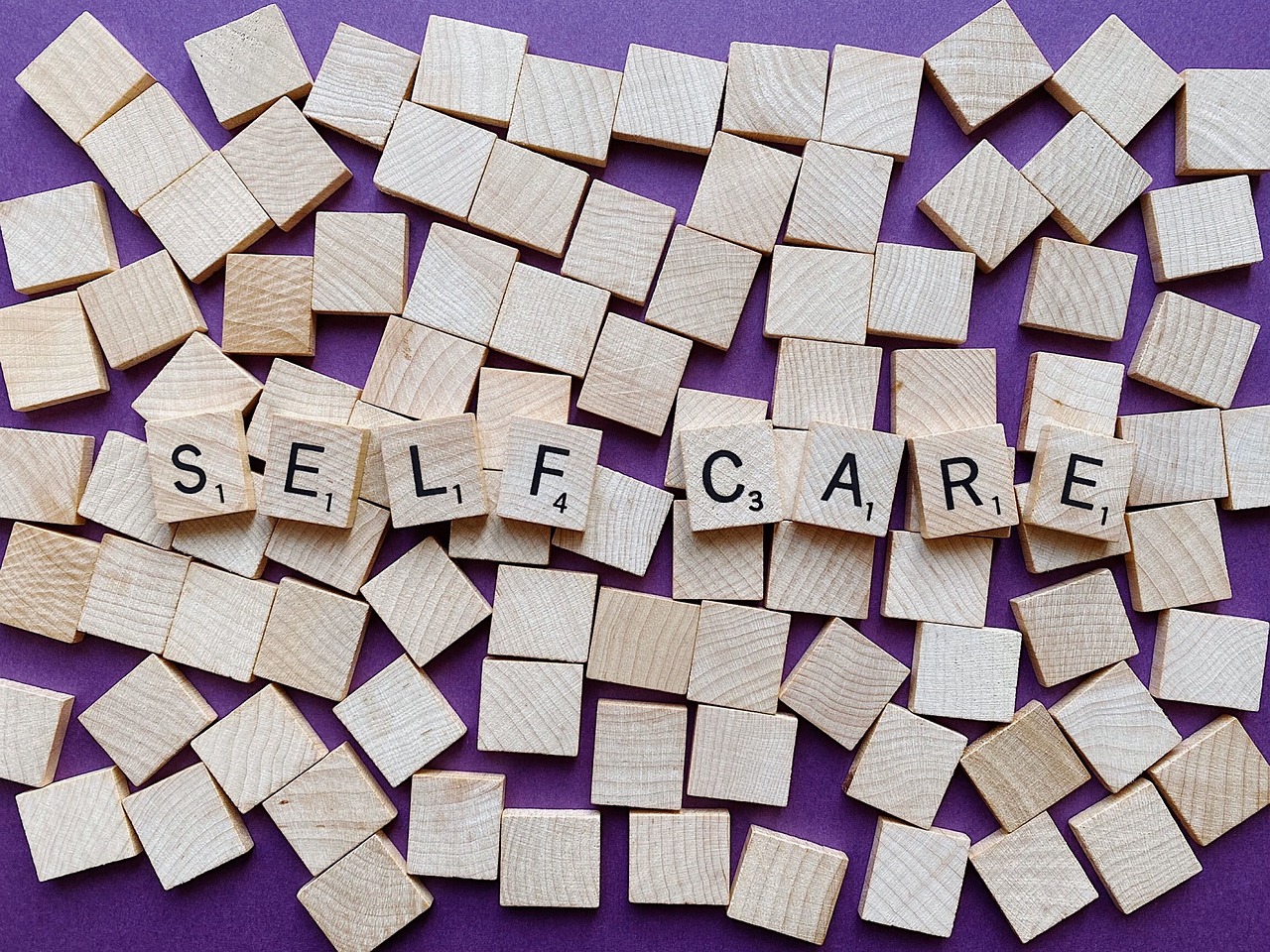|
IN BRIEF
|
To thrive in a home-based environment, it’s essential to implement effective self-care strategies that foster both personal well-being and productivity. Start by assessing your needs; identify the different aspects of your life and daily activities that require attention. This helps to pinpoint specific stressors and areas that need support.
Set reasonable goals and break them into manageable steps. Establishing a clear plan allows you to track progress and celebrate small wins, reinforcing a positive mindset. Incorporate daily rituals that nourish your mind, body, and spirit. This might include practicing mindfulness, engaging in regular physical activity, and ensuring that your workspace promotes focus.
Regularly explore new interests or revisit hobbies to stimulate creativity and maintain enthusiasm. It’s equally important to take intentional breaks throughout the day; stepping away from your workstation can rejuvenate your energy levels and enhance overall productivity. By prioritizing self-care, you create a balanced approach to work and life, paving the way for lasting success in the comfort of your home.
In today’s fast-paced world, achieving success while working from home requires not just skill and determination, but also a solid foundation of self-care strategies. Prioritizing your well-being is essential to ensure productivity and maintain a healthy work-life balance. This article explores effective self-care strategies that pave the way for achieving success at home, focusing on emotional, physical, and mental health practices that can enhance your daily routine.
Understanding the Importance of Self-Care
Self-care is a critical practice that often gets overlooked in the pursuit of success. It involves taking deliberate steps to prioritize your well-being, allowing you to recharge your mental, emotional, and physical energy. When working from home, the lines between work and personal life can blur, increasing stress levels and diminishing productivity. Recognizing the importance of self-care not only helps you manage stress but also fosters a more focused and efficient approach to your work tasks.
Identifying Your Personal Self-Care Needs
The first step in implementing effective self-care strategies is to assess your needs. Take time to reflect on various areas of your life, including physical health, emotional well-being, and social connections. Make a comprehensive list of daily activities and identify your major stressors. Understanding what drains your energy or what moments spark joy can empower you to make better self-care choices. Utilize tools and resources to guide your reflection, and discover what types of practices align with your unique personality and aspirations.
Creating Realistic Goals for Self-Care
Setting realistic goals for self-care is fundamental to ensure consistency. Define what success looks like for you in each area of self-care, and devise a plan to achieve those goals. Start small; embrace incremental changes that you can sustain over time. For instance, if physical activity is a goal, commit to a 30-minute walk a few times a week rather than jumping into an intense workout regime. Establishing attainable goals reduces the risk of overwhelming itself and builds confidence as you see progress.
Integrating Physical Wellness into Your Daily Routine
Physical well-being plays a key role in overall productivity. Incorporating regular exercise, healthy eating habits, and adequate sleep can significantly enhance your energy levels and mood. Make time for physical activity each day, whether it’s a quick workout session, yoga, or stretching breaks. Prioritize nourishing meals, keeping in mind that what you fuel your body with directly influences your concentration and output. Remember, sleep is essential, so aim for quality rest that allows your mind and body to recover.
Emotional Self-Care: Nurturing Your Inner Self
Emotional well-being is equally important. Incorporate strategies such as journaling, mindfulness meditation, or practicing gratitude into your routine to cultivate a positive mindset. These techniques can help you process emotions and navigate stressors more effectively. Consider setting aside time each week to engage in activities you enjoy, whether it’s reading a book, listening to music, or pursuing a hobby. Fostering emotional awareness and engaging in activities that bring happiness can provide relief from the pressures of work.
The Impact of Social Connections on Success
Despite the remote nature of home-based work, social interactions remain crucial. Building connections with colleagues and friends can enhance motivation and provide a support system. Schedule regular check-ins with colleagues to maintain both professional relationships and camaraderie. Engage in social activities that can be done virtually or in small groups, allowing you to feel connected even while working from home. Social connections boost morale and can even enhance productivity, making it an effective self-care strategy for success.
Establishing Boundaries between Work and Personal Life
Creating clear boundaries is essential to prevent work from encroaching on personal time. Set specific working hours and communicate them to your family and friends. Designate a workspace that’s strictly used for work-related tasks, reducing distractions and mental clutter. Regularly step away from your workstation during breaks — consider setting timers to remind yourself to take those essential pauses. Establishing boundaries helps to maintain focus during work hours while allowing you to fully disconnect and unwind during personal time.
Mindfulness and Stress Management Techniques
Mindfulness and stress management techniques, such as meditation and breathing exercises, can significantly reduce anxiety and improve concentration. Spend a few moments each day practicing deep breathing or guided meditation to center your thoughts and release tension. Explore resources that offer structured mindfulness practices or join a local group that focuses on meditation techniques. This step towards self-care fosters a calmer mind and enhances overall resilience against stressors at work and home.
Incorporating Hobbies and Leisure Activities
Recreational activities provide an escape from daily stressors and contribute to a well-rounded life. Make it a point to explore new interests or revisit old hobbies during your off-hours. Whether you enjoy painting, gardening, or learning a musical instrument, engaging in leisure activities offers a constructive way to recharge. Make it a routine to try something new each week, as these moments of joy and creativity enhance your mental well-being and provide balance to your work-life dynamic.
Continuous Learning and Personal Development
Committing to personal development is a form of self-care that empowers you to achieve greater success. In today’s digital age, there are abundant resources available to pursue new skills or knowledge from the comfort of your home. Dedicate time each week to engage with online courses, webinars, or workshops related to your career or personal interests. Continuous development elevates your qualifications and encourages you to stay invested in your professional growth while contributing to your overall well-being.
Utilizing Resources for Enhanced Well-Being
Explore online resources and communities dedicated to self-care and wellness. Websites like Flora the Explorer offer strategies tailored to improve mental health. Engaging with community forums allows you to share experiences and cultivate strategies with others facing similar challenges. Utilize well-researched articles and guides like NIMH as references for actionable insights on self-care practices.
Stepping Back for Perspective
It’s easy to get caught up in work tasks, leading to burnout. Remind yourself to take occasional breaks to step back and gain a fresh perspective. Use these moments to reflect on your achievements, celebrate small victories, and reassess your goals. A brief pause can enhance clarity and reignite your motivation, enabling you to return to work once again with renewed energy and focus.
Embracing Digital Detox to Enhance Focus
In our technology-driven world, constant connectivity can take a toll on mental well-being. Schedule regular digital detox periods to disconnect from screens, whether it’s during weekends or specific hours each night. Use this time to engage in offline hobbies, connect with loved ones, or simply enjoy peace and quiet. A digital detox can enhance your focus and creativity, creating space for ideas to flow and reducing the noise that often accompanies a hyper-connected lifestyle.
Reflection and Adjustment of Self-Care Routines
Self-care is an ongoing process, and it’s vital to regularly assess and adjust your routines based on your evolving needs. Keep a journal to track your self-care practices and their impact on your success. Schedule monthly check-ins with yourself to reflect on what’s working and what isn’t. Adapting your self-care routine ensures that it remains effective and aligned with your goals. Remember that this journey is personal, and it’s important to find what resonates with you.
While success at home can be achieved through hard work and dedication, integrating self-care strategies into your routine plays a pivotal role in sustaining productivity and emotional well-being. By prioritizing your health, setting realistic goals, managing stress, and nurturing connections, you can create an environment conducive to success without compromising your well-being. Explore various self-care strategies and customize them to fit your unique lifestyle for lasting impact.

Testimonials on Self-Care Strategies for Achieving Success at Home
Finding a balance while working from home can often feel overwhelming, but incorporating self-care strategies has transformed my experience. By breaking down my tasks into manageable steps, I’ve greatly increased my productivity. Setting realistic daily goals not only gives me direction but also allows me to celebrate small wins, fostering a positive mindset throughout my workday.
One of the most effective self-care practices I’ve adopted is taking regular breaks to engage in physical activity. Not only does this help alleviate stress, but stepping away from my workspace for a brisk walk or quick exercise routine rejuvenates my energy. This simple act has had a profound impact on my overall productivity and well-being.
I’ve also learned the importance of creating a serene work environment. Taking a few moments each day to declutter my space reinforces a sense of calm. A clean and organized workspace enhances my focus and minimizes distractions, supporting my efforts to stay on track with my goals.
Exploring new hobbies has become a vital aspect of my self-care routine. Engaging in activities that I enjoy not only provides a creative outlet but also helps me unwind after a long day. Whether it’s painting, gardening, or even cooking, these interests keep me engaged and excited outside of my work environment.
Mindfulness techniques such as breathing exercises and meditation have also become essential in my daily life. By dedicating just a few minutes to these practices, I find that I’m not only better equipped to manage stress but also more present in my daily tasks. This mindfulness contributes positively to both my personal and professional growth.
Connecting socially has made a world of difference in sustaining my mental health while working from home. Regularly reaching out to friends or family, even if it’s just for a quick chat, helps me feel grounded. It’s a great reminder that I’m part of a community, and maintaining these relationships is a crucial facet of my self-care strategy.








0 Comments